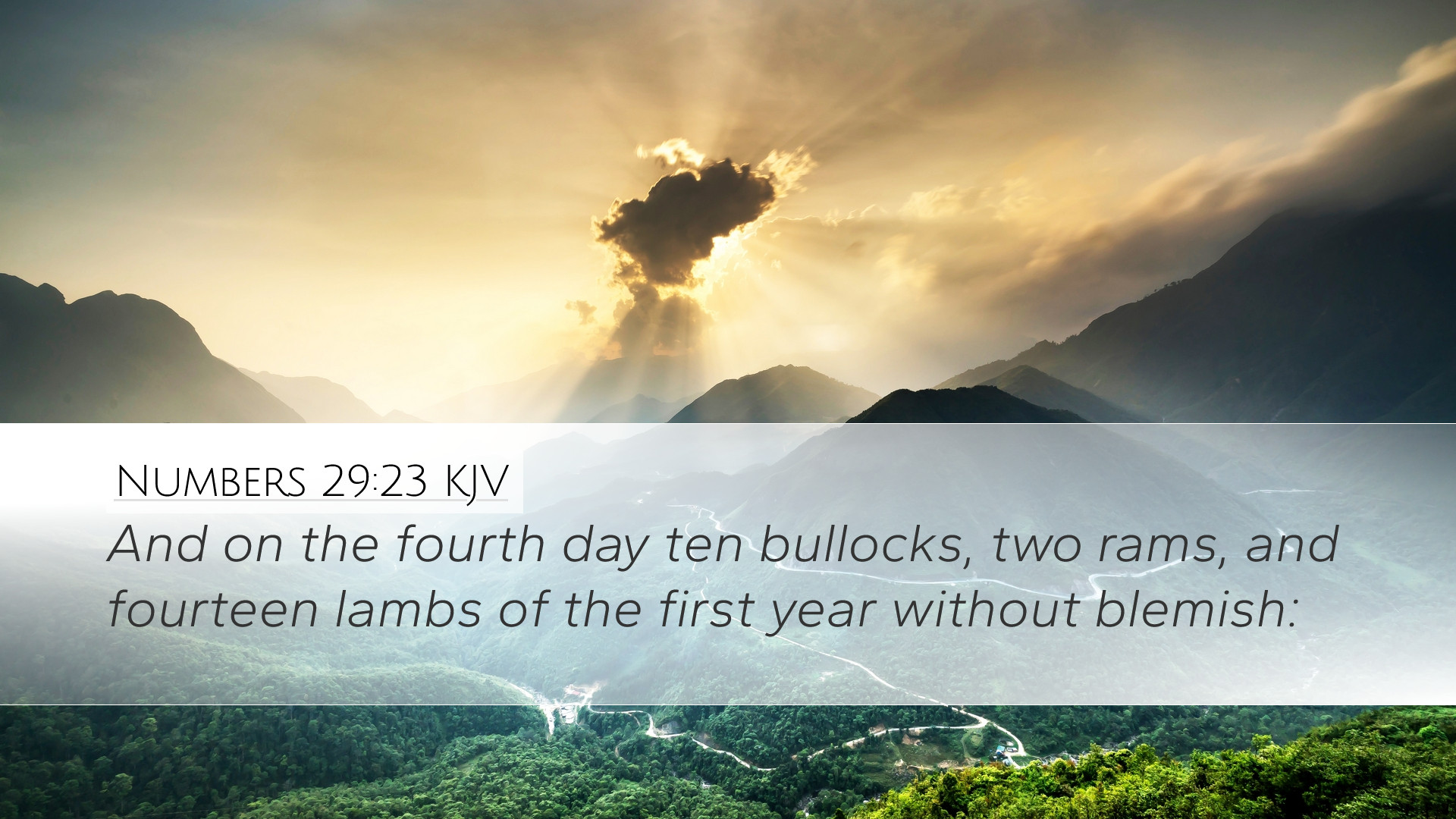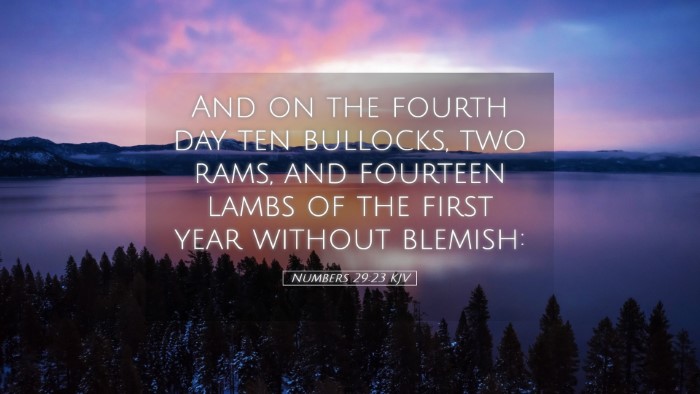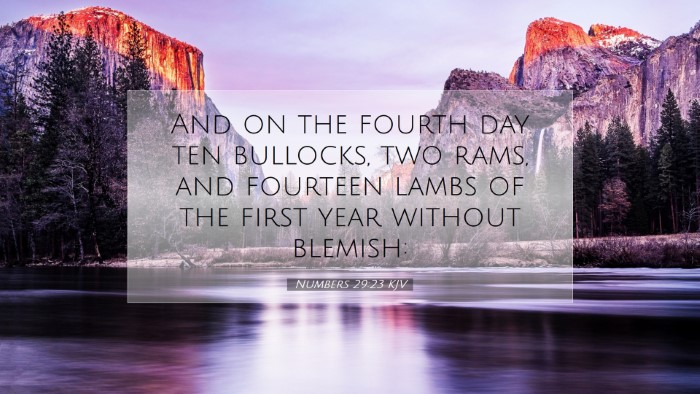Commentary on Numbers 29:23
Numbers 29:23 reads: "And on the third day, a sacrifice of the Lord's offering was presented, from the herd." This passage, set within the context of the feasts and sacrifices mandated in the Law of Moses, provides significant insights into the worship practices of the Israelites and their understanding of sacrifice.
Contextual Background
In the Book of Numbers, the Israelites are encamped in the wilderness, preparing to enter the Promised Land. Leadership, regulations for worship, and the structure of communal life are pivotal themes. The chapter 29 deals specifically with the offerings to be made during the Feast of Tabernacles, a celebration commemorating God's providence during the Israelites' 40 years of wandering.
Significance of Sacrifice
The sacrifice mentioned in this verse reflects a significant aspect of the Hebrew religious system. According to Matthew Henry, sacrifices were not merely ritualistic acts but were deeply embedded in the covenant relationship between God and His chosen people. These offerings symbolize both devotion and a communal recognition of God’s sovereignty.
- Blood Atonement: The sacrificial system pointed towards atonement for sin, which was essential for maintaining a relationship with God.
- Symbol of Thankfulness: Offering sacrifices during feasts displayed gratitude for God’s blessings, as emphasized by Adam Clarke.
- Community Aspect: Such communal sacrifices fostered unity among the people, reminding them of their identity as a chosen nation.
Theological Insights
Albert Barnes remarks that the specifics of sacrifice highlight God’s desire for a relationship with His people. The meticulous instructions regarding the offerings convey the seriousness of sin and the need for atonement. Sacrifices were a foreshadowing of Christ's ultimate sacrifice, underscoring the continuity of God’s redemptive plan.
Elements of Worship
This passage emphasizes several key elements of worship in ancient Israel:
- Obedience: The requirement to bring specific offerings demonstrates obedience to God’s commands, an essential aspect of worship.
- Reverence: The act of bringing offerings reflects a heart of reverence and acknowledgment of God's holiness.
- Joyful Participation: Engaging in communal sacrifices during festivals was a joyful celebration of God’s faithfulness, as observed by Clarke.
The Third Day
Specifically, the mention of the "third day" has important implications. Many scholars have noted that in biblical literature, the third day is often associated with significant events and revelations from God. For instance, in Genesis, God’s creation culminated with a profound declaration of goodness.
Symbolic Meaning
The focus on the “third day” can symbolize new beginnings and hope, as explored in various commentaries:
- Resurrection Foreshadowing: The resurrection of Christ on the third day is a central tenet in Christian theology, suggesting that these sacrifices carry a deeper spiritual foreshadowing.
- Renewal: The number three often represents completeness in Scripture, indicating a fullness of worship and the renewal of covenantal commitment.
Practical Application
For pastors, students, and theologians, this passage invites reflection on modern practices of worship and sacrifice. Just as the Israelites were called to bring their offerings with intention and reverence, contemporary worshippers are encouraged to approach God with similar attitudes.
Reflections for Worship
Consider these aspects when reading Numbers 29:23:
- Heart of Worship: Are we offering our lives as living sacrifices, acknowledging God's sovereignty over all aspects of our lives?
- Community Participation: How does our communal worship reflect unity and shared purpose in Christ?
- Gratitude in Worship: Are we coming before God with hearts full of gratitude for His past provisions and faithfulness?
Conclusion
In summary, Numbers 29:23 speaks to the integral role of sacrifices in the worship of ancient Israel, showcasing themes of obedience, gratitude, and communal identity. This verse, while historical, also resonates with profound theological and practical implications for today's believers. Engaging with this text encourages a deeper understanding of what it means to worship God authentically and the underlying hope that these sacrificial practices foreshadow.


